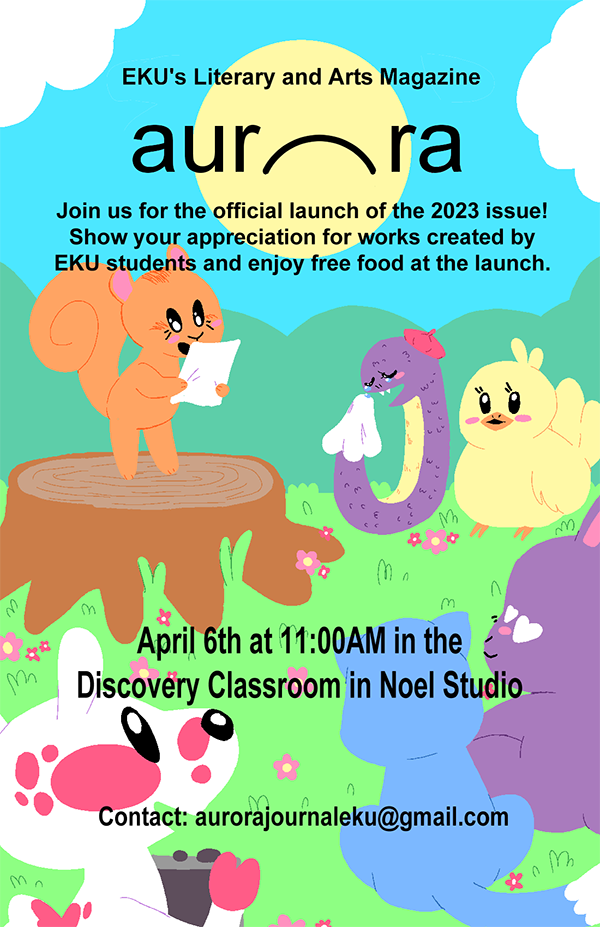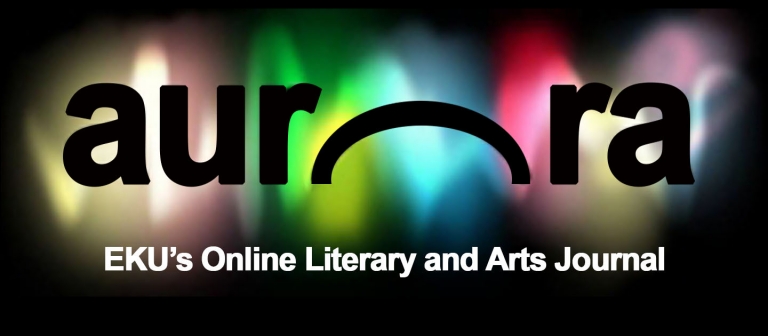Interview with Carter Sickels
Conducted by Joe McKenna dnd Jonathan Sawyer
When he isn’t busy writing, Carter Sickels teaches at the Bluegrass Writers’ Studio here at EKU. The Evening Hour, his first novel, was the winner of the Lambda Literary’s Emerging Writer Award. He continues to inspire other emerging writers with his encouraging teaching style that many editors here at Aurora have experienced firsthand. Sickels is also the editor of the collection of essays Untangling the Knot which explores marriage and the LGBTQ experience. Sickels brings his inclusive and broadened perspective to this interview.
McKenna, Sawyer: How did you get your novel The Evening Hour published?
Sickels: My agent sent the novel out to publishing houses. It was rejected maybe 25 times or so before we found a home with Bloomsbury. It’s important for young writers to realize that rejections are common in the publishing world, and you have to keep sending out your work and writing new material.
McKenna, Sawyer: What else have you published?
Sickels: I edited a collection of essays called Untangling the Knot: Queer Voices on Marriage, Relationships, and Identity. I’ve also published short stories and essays in various journals.
McKenna, Sawyer: Are there literary magazines or journals that you tend to read?
Sickels: I have a subscription to Tin House, Appalachian Heritage out of Berea, Oxford American, and The New Yorker. I also try to read a few online journals, such as Guernica.
McKenna, Sawyer: What is your favorite thing about teaching creative writing?
Sickels: It’s always exciting to get to read students’ work, watch them develop their writing, and start to tell the story they need to tell. It’s inspiring to be part of the workshop process. A well-working workshop requires mutual respect for each other and the work, and rigorous, thoughtful, and honest feedback. It’s rewarding for me to engage with students about craft and literature, and to hear them giving each other intelligent, helpful feedback.
McKenna, Sawyer: What is the most challenging thing about teaching creative writing?
Sickels: One of the challenges is getting students to revise their work in a deep and meaningful way. Many of my students seem to fear revision. But, writing is rewriting. That first draft is never a complete. You must be ruthless in your revisions. You must write many muddy drafts in order to get to the one that shines.
McKenna, Sawyer: What is the best piece of advice you can give to aspiring writers?
Sickels: The best advice I can give you is to keep writing – to do it regularly – and to read literature. Read, read, read. Then, you should try to get your work out there. Submit to literary journals. Be part of the literary community, too – go to conferences and readings. Maybe you’ll want to join a writing group, or continue on to get your MFA. The point is to engage with other writers. I’ve been at this a long time, and it took me years before I got a break and was accepted into a writing residency. Going to Bread Loaf Writers’ Conference opened many doors for me. But, it’s important to realize that I was rejected by this particular conference several times before I was accepted. Rejection is a part of the writing life—and you can’t let that stop you. I’ve been rejected countless times—from residencies, literary journals, fellowships. You keep writing because it’s what you do—and it’s important to keep learning and improving your craft.



